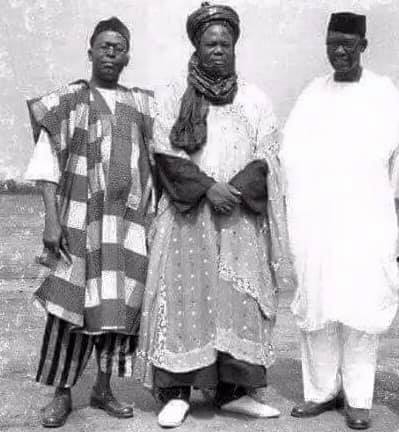There are no products in your shopping cart.
| 0 Items | £0.00 |


[1] On August 6 1861, the port of Lagos was seized by the British
[2] On 5 March 1862, the Crown Colony of Lagos was declared, governed directly from London
[3] In 1881, British soldier turned explorer George Goldie sought a charter from the British government seeking to do exactly what Cecil Rhodes did in southern Africa. To meet his objections, the capital of the United African Company was increased from £250,000 to £1m and great energy was displayed in founding stations on the Niger.
[4] On 1 January 1890, the Royal Niger Company's charter was revoked and the British government took control of the area currently constituting Northern Nigeria
[5] On 1 January 1900, the Royal Niger Company transferred its territories to the British government for the sum of £865,000. The ceded territory together with the small Niger Coast Protectorate, already under imperial control, was formed into the two protectorates of Northern and Southern Nigeria
[6] In 1900, the Protectorate of Southern Nigerian was created with the union of the Niger Coast Protectorate with territories chartered by the Royal Niger Company below Lokoja, with its capital in Calabar
[7] In 1902, Frederick Lugard was appointed the High Commissioner of the newly created Northern Nigeria Protectorate, with his headquarters in Zungeru
[8] In 1906,the Lagos colony was added to the Protectorate of Southern Nigeria and the territory was officially renamed the Colony and Protectorate of Southern Nigeria
[9] In 1906, the Protectorate of Northern Nigeria was created built after the conquering of the Sokoto Caliphate
[10] On January 1 1914, the northern and southern protectorates were formally united as the Colony and Protectorate of Nigeria
[11] In 1917, Frederick Lugard moved the capital of the Protectorate of Northern Nigeria to Kaduna from Zungeru
[12] In 1922, the Cliffords Constitution was enacted, which created a legislative council comprising 30 official members, 15 unofficial ones nominated by government and three unofficial members representing the municipal areas of Lagos and Calabar.
[13] In September 1923, Nigeria's first ever elections were held and the Legislative Council was inaugurated in October of the same year.
[14] In 1939, the British created three regions in Nigeria - Northern, Eastern and Western
[15] In 1946, the Richards Constitution provided for an expanded Legislative Council empowered to deliberate on matters affecting the whole country. Under this constitution, separate legislative bodies, the houses of assembly, were established in each of the three regions to consider local questions and to advise the lieutenant governors.
[16] As a result of the adoption of the Richards Constitution, mass political parties were formed in Nigeria. First created was the National Council for Nigeria and the Camerouns (NCNC) in 1944, the Action Group (AG) in 1950 and the Northern People's Congress (NPC) in 1951.
[17] In 1951, regional elections were held under the McPherson Constitution, with representatives elected into all three regional Houses of Assembly
[18] In 1952, Ahmadu Bello, Obafemi Awolowo and Eyo Ita took up the titles of Leaders of Government Business in their respective regions
[19] In 1953, Anthony Ehahoro moved a motion in the Federal House of Representatives calling for Nigeria's independence by it was defeated. His motion was emulated in nearly Ghana when on 3 August 1956, the Gold Coast Assembly adopted Kwame Nkrumah's resolution demanding independence from Britain.
[19] In 1954, the Lyttelton Constitution declared Nigeria a federation consisting of three regions, the federal territories of Lagos and the Southern Cameroons.
[20] On 1 October 1954, the colony became the autonomous Federation of Nigeria and that year, the first ever federal elections were held. Three regional assemblies were elected in each region
[21] On October 1 1954, Ahmadu Bello, Obafemi Awolowo and Nnamdi Azikiwe became the premiers of the Northern, Western and Eastern regions, marking the first time Nigerians had direct control over their own affairs
[22] Nigeria's first Constitutional Conference took place in London from May 23 until June 26 1957, attended by all the major political players including Ahmadu Bello, Nnamdi Azikiwe, Obafemi Awolowo, Joseph Tarka, Eyo Ita, Harold Dappa-Biriye, Tafawa Balewa, Ladoke Akintola, Michael Okpara, Kinglsey Mbadiwe, Anthony Enahoro, Bukar Dipcharima, Sam Ikoku, Rotimi Williams, Ayo Rosiji, Theophilus Benson, Remi Fani-Kayode, Festus Okotie-Eboh, Muhammed Ribadu, Inuwa Wada, Shettima Kashim and Josiah Olawoyin.
[23] In 1957, Chief Ladoke Akintola moved a second motion for independence in Parliament and asked Nigeria to gain our independence from the British in 1959. This motion was passed but the British authorities refused to acquiesce to it
[24] In 1957, Abubakar Tafawa-Balewa was elected chief minister of Nigeria, leading a coalition government of NPC, NCNC and AG members
[25] In 1958 Remi Fani-Kayode moved the third motion for Nigeria's independence in the federal parliament, asking that Nigeria should be given her independence on April 2 1960. The motion was not only passed by parliament but it was also acquiesced to by the British.
[26] In September and October 1958, the second Nigerian Constitutional Conference took place in London at which it was agreed to fix October 1 1960 as Independence Day.
[27] Federal elections were held in 1959, during which the likes of Nnamdi Azikiwe and Obafemi Awolowo gave up their premierships to stand in the federal parliament
[28] In 1959, Jaja Wachukwu became the first speaker of the House of Representatives and on January 1 1960, Nnamdi Azikiwe became the first president of the senate in the run-up to independence
[29] On October 1 1960, Nigeria gained independence with Tafawa Balewa elected prime minister, Nnamdi Azikiwe governor-general and Obafemi Awolowo, leader of the opposition. Ahmadu Bello, Ladoke Akintola and Michael Okpara became the regional premiers
[30] As speaker of the House of Representatives, Jaja Wachukwu lowers the Union Jack and hands it to the visiting Princess Alexandria, the representative of the British Royal family. He then hoists the green-white-green flag in its place. Tafawa-Balewa is subsequently sworn-in as the head of government.